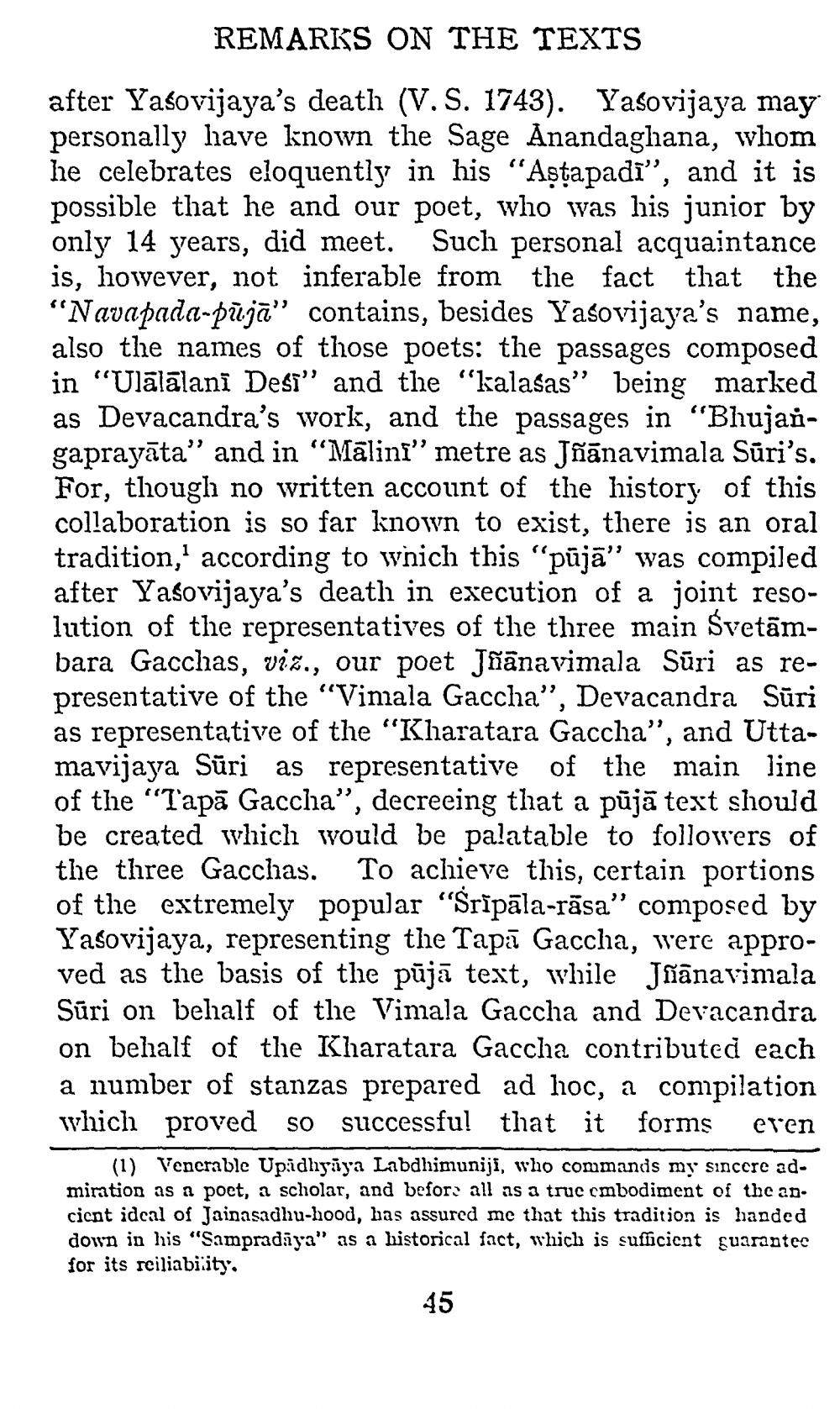________________
REMARKS ON THE TEXTS after Yasovijaya's death (V. S. 1743). Yasovijaya may personally have known the Sage Anandaghana, whom he celebrates eloquently in his "Astapadi”, and it is possible that he and our poet, who was his junior by only 14 years, did meet. Such personal acquaintance is, however, not inferable from the fact that the “Navapada-pājā" contains, besides Yasovijaya's name, also the names of those poets: the passages composed in “Ulālālani Desi'' and the "kalasas" being marked as Devacandra's work, and the passages in "Bhujangaprayāta" and in "Malini'metre as Jñānavimala Sūri's. For, though no written account of the history of this collaboration is so far known to exist, there is an oral tradition, according to which this "pūjā” was compiled after Yasovijaya's death in execution of a joint resolution of the representatives of the three main Svetāmbara Gacchas, viz., our poet Jñanavimala Sūri as representative of the "Vimala Gaccha", Devacandra Sūri as representative of the "Kharatara Gaccha", and Uttamavijaya Sūri as representative of the main line of the 'Tapā Gaccha”, decreeing that a pūjā text should be created which would be palatable to followers of the three Gacchas. To achieve this, certain portions of the extremely popular “Sripāla-rāsa" composed by Yasovijaya, representing the Tapā Gaccha, were approved as the basis of the pūjā text, while Jñanavimala Sūri on behalf of the Vimala Gaccha and Devacandra on behalf of the Kharatara Gaccha contributed each a number of stanzas prepared ad hoc, a compilation which proved so successful that it forms even
(1) Vencrable Upidhyaya Labdhimuniji, who commands my sincere admiration as a poet, a scholar, and before all as a truc embodiment of the an. cicnt idcal of Jainasadhu-hood, has assured me that this tradition is handed down in his "Sampradaya" as a historical fact, which is sufficient guarantec for its reiliability
45




